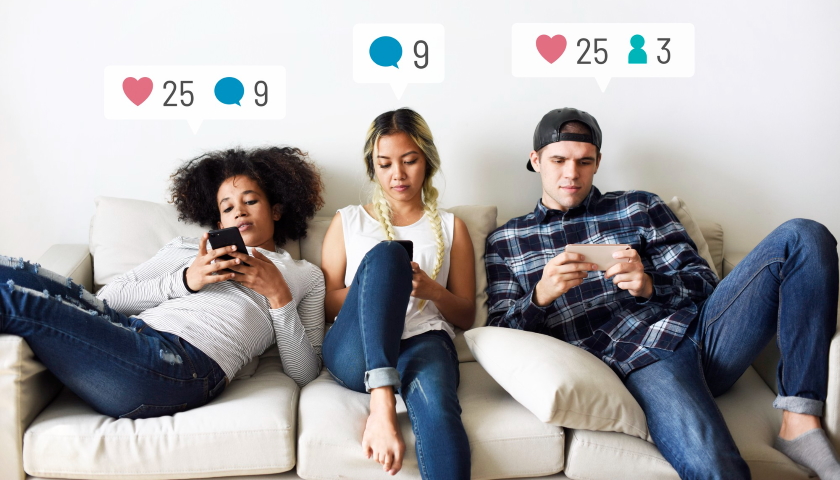As Facebook battles a new PR crisis in the wake of the recent Facebook Files investigative report series, the company is also seeking to provide more transparency into its processes, and oversight as to how its systems decide what people see in their News Feed every day.
Earlier this year, Facebook published a new explainer on how its News Feed algorithm works, covering key ranking elements that dictate reach. And today, Facebook has shared another distribution overview, this time looking at the types of posts it looks to limit in the Feed, which don’t break its rules, necessarily, but will see less reach, for various reasons.
As explained by Facebook:
“Our content distribution guidelines outline some of the types of content that receive reduced distribution in News Feed. Our enforcements to reduce problematic content in News Feed are rooted in our commitment to the values of responding to people’s direct feedback, incentivising publishers to invest in high-quality content and fostering a safer community.”
The listing doesn’t really offer any amazing new insight, but it does provide some more context to consider in how Facebook approaches content restrictions.
The main focus here is on potentially misleading and problematic content, with Facebook looking to reduce the reach of posts that fall into these categories:
- Ad farms – Posts that contain links to ad-riddled pages, purely designed to boost traffic numbers
- Clickbait links – Misleading posts designed to lure clicks
- Comments that are likely to be reported or hidden – Comments that Facebook predicts people are likely to hide or report, based on past insight
- Engagement bait – Posts that explicitly request engagement (e.g. shares, comments, likes) for purposes other than a specific call to action
- Links to suspected cloaking domains – These are domains that disguise their destination by concealing the name of the landing page or web address, seeking to bypass Facebook’s review processes
- Links to websites requesting unnecessary user data – This includes sites that request personal information before showing content
- Low-quality browsing experiences – Websites with errors or poor mobile display
- Low-quality comments – Facebook’s system will downgrade comments that include no words (i.e. just a username tag) and/or cut and pasted text blocks
- Low-quality events – Facebook will reduce the reach of event listings that are incomplete or are from Pages that have shown signs of inauthentic behavior
- Low-quality videos – Videos posted as “live broadcasts” which Facebook predicts to be static, animated, looping, polls-only or pre-recorded, as well as static images uploaded as “videos” with no dynamic audio
- Pages predicted to be spam – Pages Facebook predicts may be operating malware and/or phishing scams
- Sensationalist health content and commercial health posts – Including claims of “miracle cures”, and posts attempting to sell products or services based on health-related claims
All of these make sense, and the impacts of such would be limited for those operating legitimate profiles and websites – though it is interesting to note that Facebook will penalize reach for pages that provide a poor mobile experience.
It’s also worth noting the ‘engagement bait’ rule, which some people have inadvertently fallen foul of in the past.
As per Facebook, engagement bait, in this context, relates to:
“Posts that explicitly request engagement (such as votes, shares, comments, tags, likes or other reactions) for purposes other than a specific call to action (such as seeking help to find missing people or property, raising money or sharing a petition) on the Facebook platform. For example, this doesn’t include posts that ask people to engage in order to show that they do or do not support an issue, or to share time-sensitive information regarding natural disasters and life-threatening events.”
Facebook says that user feedback has indicated that users don’t appreciate posts like this, which prompt them to interact by liking, sharing, commenting and taking other actions on posts.
That also tangentially relates to contest promotions, with Facebook’s rules stating that:
“Personal Timelines and friend connections must not be used to administer promotions (ex: “share on your Timeline to enter” or “share on your friend’s Timeline to get additional entries”, and “tag your friends in this post to enter” are not permitted).”
Those running engagement-focused contests or promotions should ensure they’re very clear on all of these elements.
In addition to this, Facebook will also downgrade content from domains with limited original content, those that have shared fact-checked misinformation in the past, and news articles without transparent authorship (like the author’s name attached to the post).
Facebook will also limit the reach of content from domains and Pages that have a high ‘click gap’:
“Links to websites that receive a particularly disproportionate amount of their traffic directly from Facebook compared to the amount of traffic that the websites receive from the rest of the Internet.”
In other words, Pages that are likely seeking to game the Facebook algorithm through spammy tactics, while Facebook also limits the reach of posts from people who ‘hypershare into groups’.
“Posts from people who we predict are using multiple accounts to post in groups at a very high frequency. These posts have a high correlation with spam reports and provide a piece of content with high reach to irrelevant audiences who do not want to see this content.”
Read more here: socialmediatoday.com





